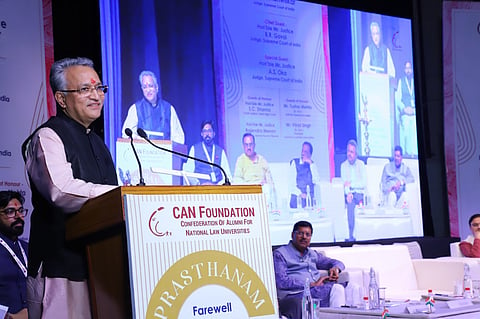
- News
- Columns
- Interviews
- Law Firms
- Apprentice Lawyer
- Legal Jobs
- हिंदी
- ಕನ್ನಡ

Former Supreme Court judge Justice AM Khanwilkar has taken over the reins of anti-corruption authority Lokpal of India, almost two years after the office fell vacant in May 2022.